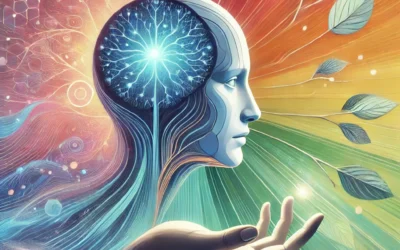The recent transition of marijuana from a Schedule I to a Schedule III drug under the Controlled Substances Act (CSA) by the Drug Enforcement Administration (DEA) marks an important turning point in the perception and regulation of cannabis in the United States. This shift, which came about following an agreement with leading federal health agencies, is a clear departure from previous policies and represents a significant modification in the nation’s approach to cannabis regulation.
This decision has elicited a significant amount of excitement among many Americans, and rightly so. It effectively loosens the shackles of over 85 years of cannabis prohibition in the country, offering new possibilities and potential benefits for both recreational and medical use. However, beyond the general sense of anticipation, it’s important to consider what this reclassification really signifies, particularly for the field of mental health.
The implications of this change are far-reaching and profound, especially in the context of mental health care. The reclassification of cannabis opens up new avenues for its use in the treatment of various mental health conditions, including anxiety, post-traumatic stress disorder (PTSD), and depression. It signals a recognition of the potential therapeutic benefits of cannabis, a sentiment that is growing in the medical community and society at large. This shift in classification, and the resulting changes in access and perception, could have a transformative impact on mental health treatment in the United States.
Here’s how:
1. Increased Research Opportunities
Reclassifying marijuana as a Schedule III substance is expected to promote increased research into its medical benefits and uses. Schedule I substances are deemed to have no accepted medical use and a high potential for abuse, thus hindering research and funding. On the other hand, Schedule III substances are seen as having lower abuse potential and some accepted medical use. This could stimulate more scientific studies on the impact of cannabis on various mental health conditions.


2. Improved Access for Therapeutic Uses
The rescheduling of marijuana could potentially lead to a significant shift, enabling mental health professionals to prescribe or recommend cannabis-based treatments within a legal framework more easily. The implications of this change are vast. It would not only pave the way for a broader understanding and acceptance of cannabis as a form of treatment but also expand access to cannabis for therapeutic uses. This is particularly significant for those living in states where medical marijuana is not yet legal or is still heavily restricted. In such places, patients who could potentially benefit from cannabis-based treatments are unable to access them due to the existing legal constraints. By rescheduling marijuana, these barriers could be removed, facilitating a more widespread use of cannabis in the medical community and providing patients with more treatment options.


3. Enhanced Quality Control and Standardization
Reclassification of marijuana as a Schedule III drug implies that it will be subject to more stringent regulatory controls compared to Schedule I drugs. This significant change, while it may initially appear to create more hurdles, can actually lead to a substantial improvement in the quality control and standardization of cannabis products. Such regulatory enhancement is incredibly crucial, especially when considering the safe and effective therapeutic use of marijuana in mental health settings. Consistent product quality will ensure that patients receive the appropriate dosage and concentration of active compounds in cannabis, which will in turn optimize its therapeutic benefits and minimize potential risks or side effects. Ultimately, this shift in regulatory approach could significantly contribute to the legitimization and acceptance of cannabis as a viable therapeutic option in the field of mental health.
4. Cannabis-Assisted Therapy for Mental Health Conditions
The reclassification could make healthcare providers more comfortable with prescribing cannabis and incorporating it into mental health treatment plans. This could lead to wider acceptance and normalization of cannabis-assisted therapy. This therapy uses cannabinoids like CBD and THC to manage symptoms or as part of a comprehensive treatment plan for conditions such as anxiety, PTSD, and depression. Here’s how it could help:
- Anxiety: Some research suggests that certain cannabinoids in marijuana, like CBD, have anti-anxiety properties without psychoactive effects. This makes them beneficial for relieving anxiety.
- PTSD: Cannabis has been studied for its potential to manage symptoms like nightmares and the replaying of traumatic events. THC, another cannabinoid, has been found to reduce the retrieval of traumatic memories and improve sleep in some patients.
- Depression: There is some evidence that moderate, controlled use of cannabis can alleviate certain depressive symptoms in some users and stabilize mood.
With easier access to cannabis, therapists might incorporate it more frequently into treatments, either as a primary therapy or in addition to other therapeutic approaches.


5. Normalization and Reduced Stigma
The rescheduling of marijuana could normalize its use in medical and therapeutic settings, potentially reducing stigma around its use for mental health treatment. This may encourage more individuals to consider cannabis-assisted therapy without fear of legal repercussions or social stigma.
However, there are challenges and considerations. The reclassification of marijuana presents opportunities, but it also comes with concerns. There is a need for robust clinical evidence supporting the effectiveness and safety of cannabis for various mental health conditions. Additionally, concerns about the potential for abuse and the psychological effects of THC, the psychoactive component of cannabis, remain.


In summary, the DEA’s decision to reclassify marijuana as a Schedule III drug is a significant moment for mental health treatment in the USA. This change not only facilitates enhanced research and understanding, but it also broadens the therapeutic possibilities for those suffering from anxiety, PTSD, and depression.
As the landscape of mental health treatment evolves, cannabis-assisted therapy may become a more recognized tool in our collective effort to manage and treat mental health conditions effectively.





0 Comments